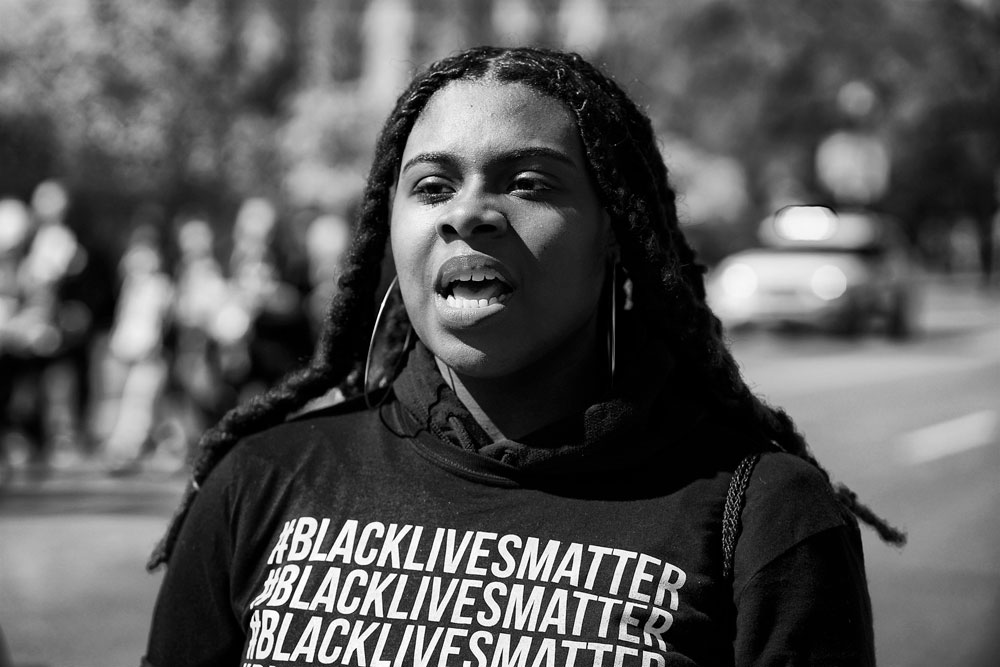
July 17, 2020; New Republic and The Conversation
As companies and foundations declare their support of #BlackLivesMatter, there is growing concern that the injection of institutional funding could undermine, rather than further, movement objectives. The movement for racial justice, for instance, questions some fundamental capitalist tenets that foundations and companies support, including ideas that some find radical, such as defunding the police to decrease anti-Black violence. This dissonance between funder and movement priorities sets up a tense and potentially damaging dynamic.
Megan Ming Francis, a political scientist at the University of Washington, has tracked what she calls “movement capture.” She points to how funding of the NAACP starting in the 1920s shifted the organization from a focus on opposing lynching and racist mob violence to a more politically palatable focus on integrating education. During the 1960s civil rights movement, the Ford Foundation sought to neutralize and/or co-opt more radical Black Power organizations, according to Karen Ferguson, a professor of African American studies at Simon Fraser University and the author of Top Down: The Ford Foundation, Black Power, and the Reinvention of Racial Liberals. Now, movement leaders worry that many philanthropies today might have similar intentions.
Over recent years, companies too have demonstrated an increased willingness to “take a stand” on social issues, with CEOs releasing statements on behalf of immigrant rights, carbon emissions reductions, and, now, racial justice. Still, many of these same companies, such as Nike and Amazon, have been criticized for releasing broad statements of support that don’t align with how they run their own businesses.
While foundations aren’t as overtly oriented to the capital markets as companies, their assets, history, and culture are all anchored in our current economic system. Darren Walker, head of the Ford Foundation, emphasizes his belief in capitalism and its ability to foster racial and economic equality. However, a growing number of political scientists and researchers have convincingly argued that philanthropy itself undermines democracy by placing the decisions on what to fund in the hands of a small group of elites.
Sign up for our free newsletters
Subscribe to NPQ's newsletters to have our top stories delivered directly to your inbox.
By signing up, you agree to our privacy policy and terms of use, and to receive messages from NPQ and our partners.
Indeed, as the COVID-19 pandemic hit, followed by the murder of George Floyd, foundations have been pressed to increase their payout beyond the five-percent minimum, often treated as a maximum, and to fund Black-led organizations instead of White-led organizations the support Black issues. But, as often occurs in systems set in their ways, the power dynamics remain at play—perhaps shifting a bit, but still present and influential.
This time around, however, movements are more aware of these systemic workarounds. Recently, BIPOC-led groups—including Brooklyn Movement Center, Food Chain Worker’s Alliance, and First Nations Development Institute, among others—wrote a letter to a small group of funders calling out recent decisions that would have put definitional power about work being done by groups led by people of color in the hands of white-led research groups. It reads:
As the world is faced with the unprecedented impacts of recent events, we invite you to see the urgency to unite and build together rather than continuing a pattern of paternalistic practices that entrench our marginalization, reinforce a culture of white supremacy, and devalue the knowledge and genius in our communities.
Both in its specifics, and its general familiarity as an avoidant tactic, it reads as a “how-to” as funders and nonprofits consider their roles in preventing this current movement for racial equity from being co-opted by the system it seeks to alter.













